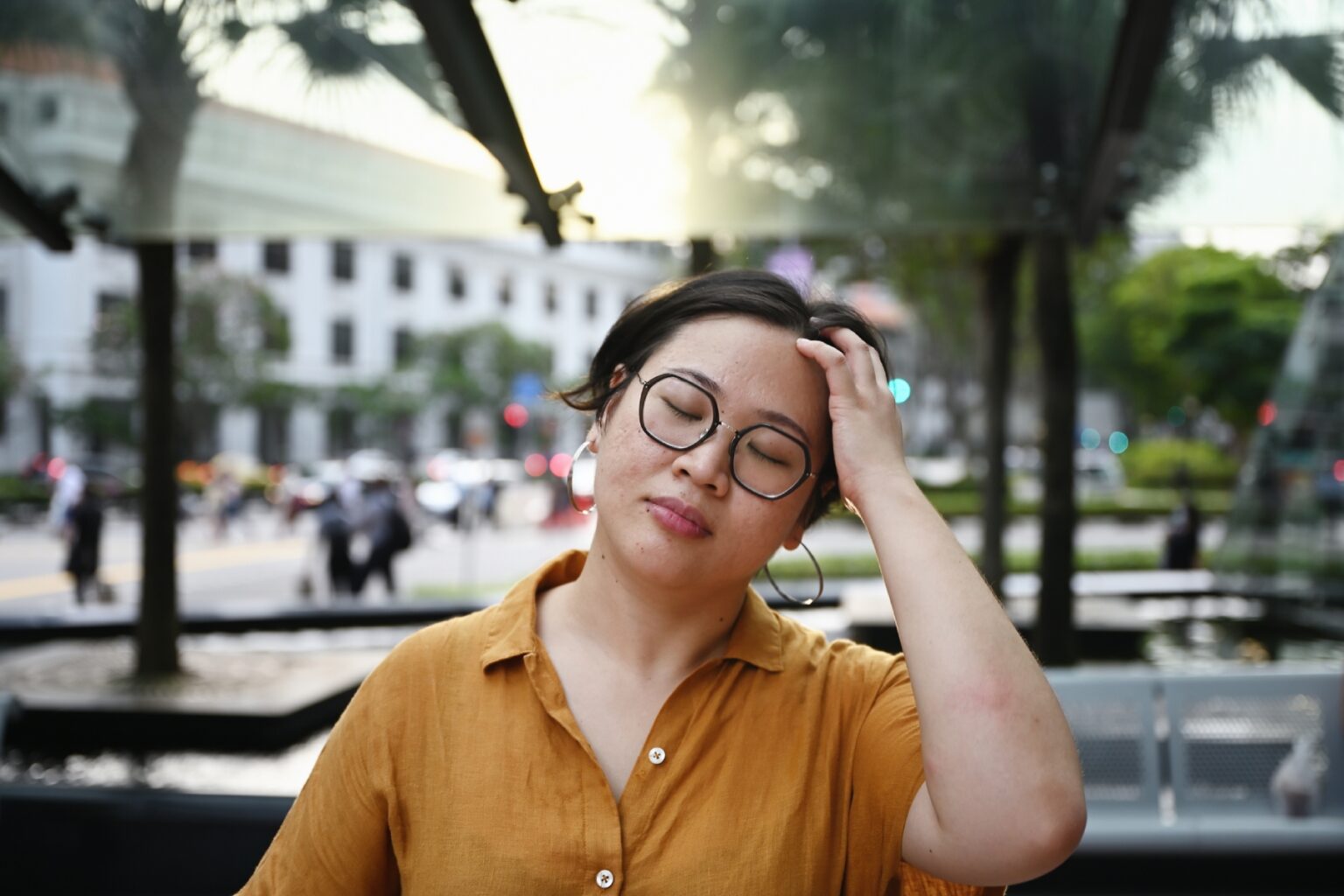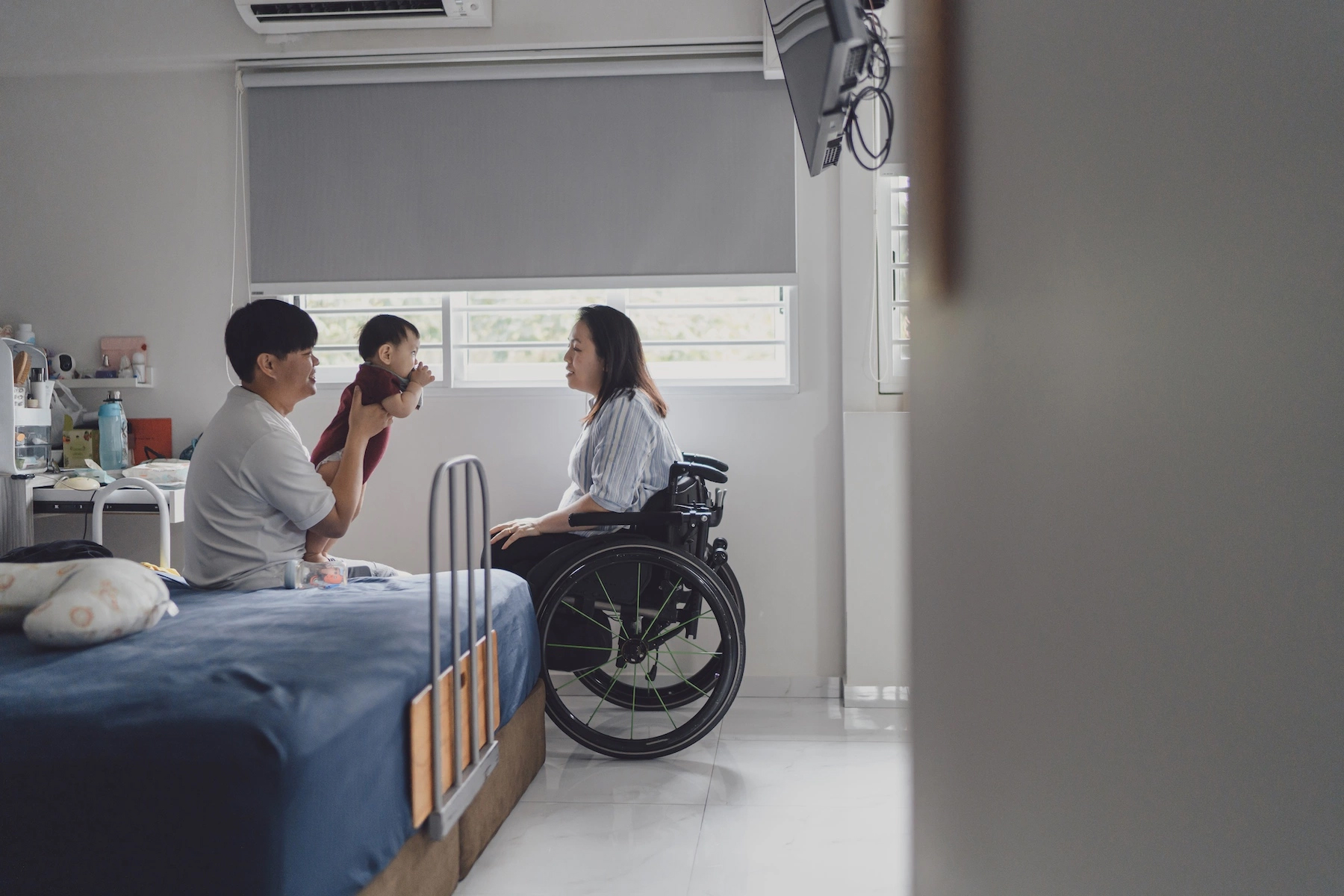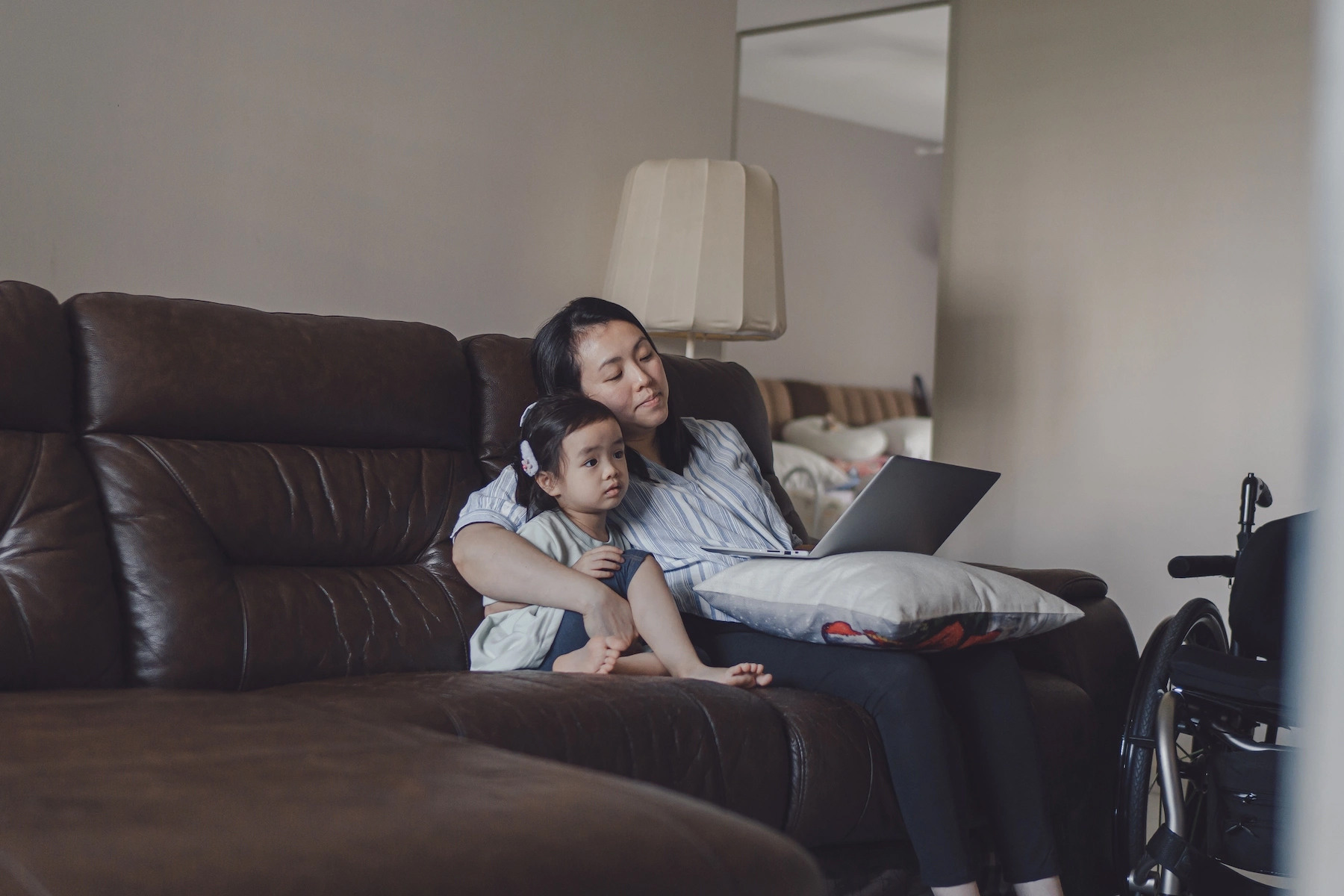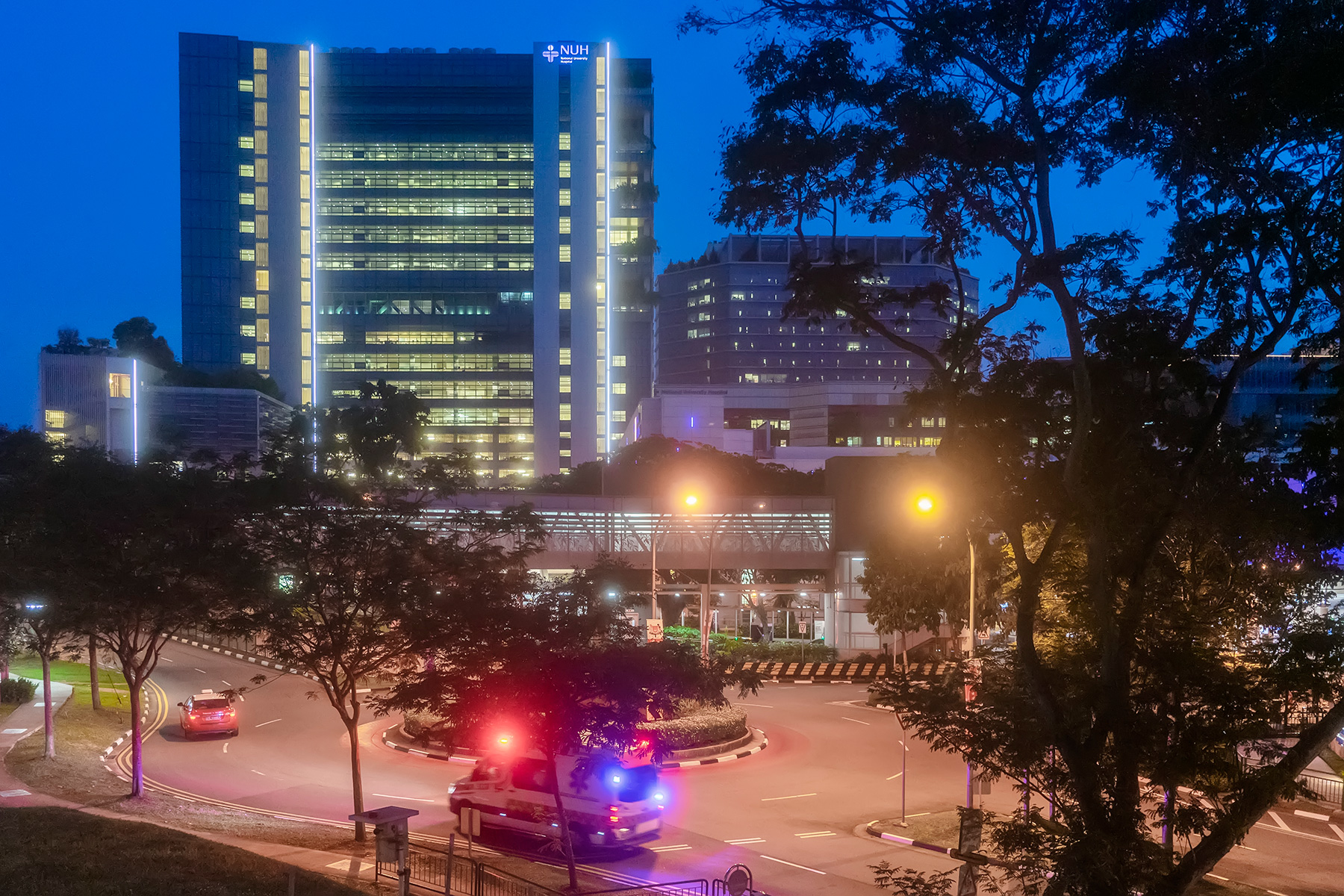Looking after your mental well-being is crucial, especially when dealing with the stressful task of moving abroad and starting a new job. However, fortunately for those relocating to Singapore, the country offers a range of mental health services, including access to counseling, support groups, and prescriptions.
To help you understand how to seek help, treatment, and advice on mental health issues in Singapore, this article covers the following:
- Mental healthcare in Singapore
- Who is responsible for Singapore’s mental health services?
- How can I access mental health services?
- Insurance for mental healthcare in Singapore
- Psychologists, psychiatrists, and therapists
- Drug and alcohol addiction services
- Mental health services for eating disorders in Singapore
- Healthcare services for severe mental health problems
- Mental healthcare services for children and young people
- Are there specialist services for specific groups or expats?
- Mental health prevention and education programs
- Emergency support and crisis lines
- Useful resources
Allianz Care
Allianz Care is a world leader in providing international health insurance. Their various premiums provide professionally designed solutions for a variety of expat lifestyles. So, wherever your life takes you, make sure you have the right health protection for you and your family with Allianz Care.
Mental healthcare in Singapore
According to Ipsos’ Global Health Service Monitor, mental health is now the number one concern among Singaporeans, with almost half (46%) of residents placing it above cancer (38%) and stress (35%).
Of course, the global COVID-19 pandemic further highlighted the effects of anxiety, depression, and burnout in the country and the need for early diagnosis and treatment. Studies reveal that children and adults in their 20s and 40s were particularly affected.
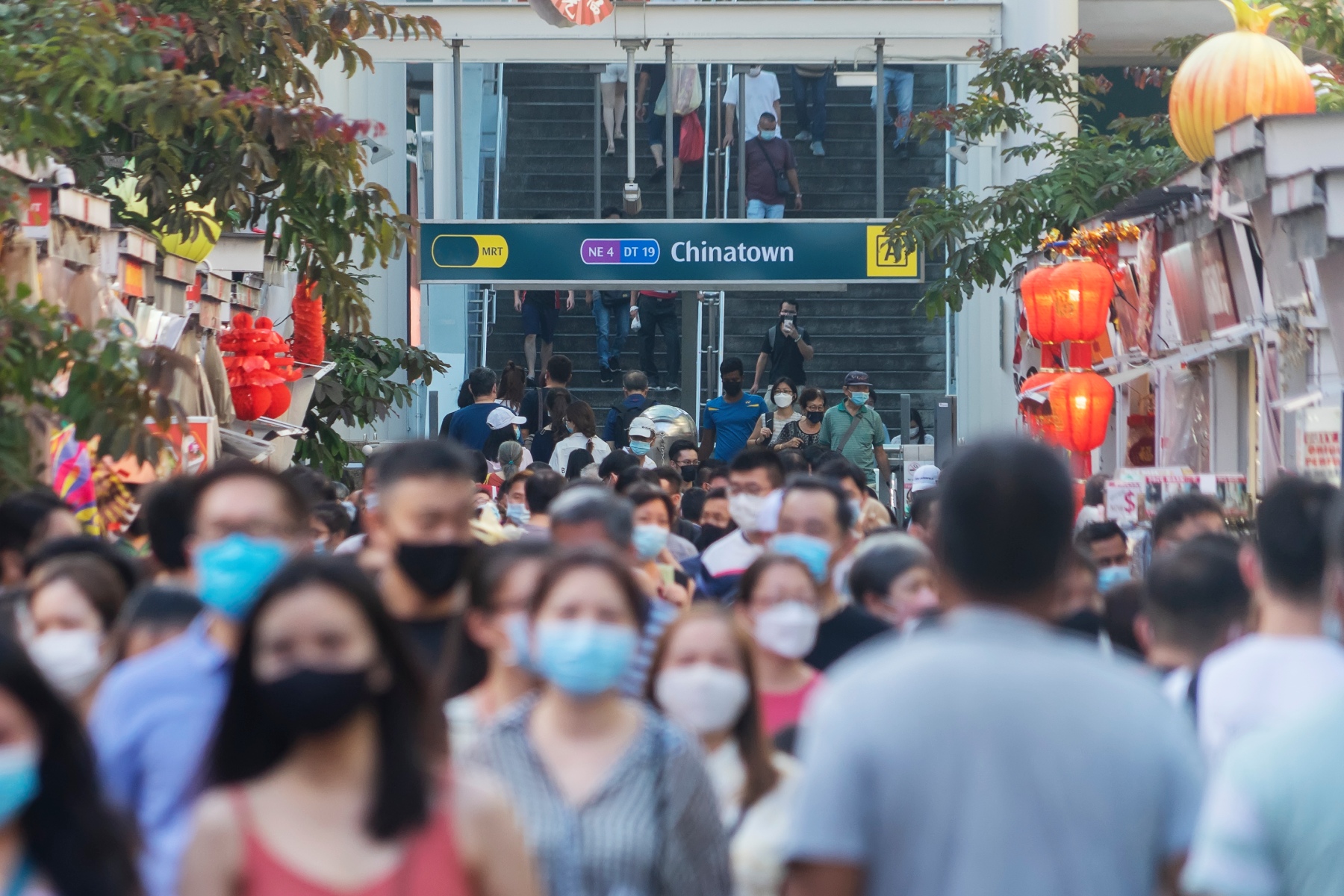
However, the normalization of help-seeking during the pandemic has helped to weaken the stigma surrounding mental health in Singapore. Measures have also been taken to raise awareness of mental health and provide support for those who need it.
For instance, some companies have introduced programs to help boost their employees’ mental well-being, including mental health consultations, mindfulness classes, and health talks. Moreover, landmark public campaigns such as Do you M.I.N.D.? have helped to push for tangible change among youth groups in Singapore.
As a result of this, more than half (54%) of residents now feel that mental and physical health are treated equally by the country’s healthcare system, representing an increase of 11% from 2021.
Despite this, however, Singapore continues to face several barriers when it comes to providing mental health services for residents. This includes fewer working psychologists when compared to similar high-income countries and a high cost of treatment for patients with mental health disorders.
Moreover, despite the measures that have been made to raise awareness of mental health, a degree of stigma still exists when it comes to seeking treatment and being in therapy.
That said, services are available for those who need them. Fortunately, expats in Singapore shouldn’t have trouble finding English-speaking mental healthcare professionals, given that it is one of the country’s four official languages.
Who is responsible for Singapore’s mental health services?
Mental health services are provided by both Singapore’s public and private hospitals. However, while many of these hospitals provide psychiatric departments, the majority of services are available at the Institute of Mental Health (IMH), which is a state-owned facility.
Notably, the IMH also runs community projects and outreach programs at satellite hospitals and community clinics across Singapore.
The Singapore Medical Council (SMC) organizes and regulates the country’s general mental health services through its Ministry of Health (MOH). This is the same body that governs Singapore’s healthcare system.
Importantly, the MOH remains the go-to source for locating healthcare professionals and clinics in your area.
How can I access mental health services?
If you are looking for mental health advice or treatment in Singapore as an expat, you should first register with a local GP. The registration process is simple, and it is advisable to do this as soon as you arrive in the country to ensure that you are prepared for any health issues that may arise.
They will work to diagnose mental health conditions alongside designated mental health professionals. If necessary, they can then provide referrals and recommendations for counseling and clinical psychology, including appointments at the IMH.

However, there are a few obstacles for expats seeking to access healthcare in Singapore. The first is that the subsidized national healthcare system is only available for citizens or permanent residents. Therefore, if you don’t qualify, you will need to purchase private health insurance. You can also book private counseling directly from one of the 1,240 practitioners in Singapore.
Expats also have a wealth of English-language online resources at their fingertips. Indeed, the digital healthcare landscape has become a boon for world travelers and expats. Singapore’s mental healthcare services even have their very own online presence for healthcare. For instance, the IMH, Singapore Counselling Centre (SCC), and MindSG (via Health Hub) all provide online first steps and services.
Insurance for mental healthcare in Singapore
Singapore’s healthcare system consists of private and public facilities. Many mental health services are covered under this broad insurance plan, offering subsidies of up to 80% at public health institutions (PHIs). However, as expats aren’t usually eligible for Singapore’s subsidized healthcare, private insurance is recommended.
There are several health insurance providers in Singapore, including:
Psychologists, psychiatrists, and therapists
Singapore’s medical field distinguishes between psychiatrists, psychologists, and therapists, as outlined below.
Psychiatrists
Psychiatrists are medical doctors who are regulated by the Singapore Medical Council (SMC). As a result, they can diagnose and treat a wide range of mental health conditions.
Psychiatrists typically undergo medical training and specialization for at least 10 years before becoming full-fledged practitioners. Their services are available at public and private institutions across Singapore, including at the specialist IMH.
Your GP will refer you for psychiatric treatment, which is often to the IMH. Notably, patients are not typically eligible for subsidized healthcare without a GP’s referral. They can, however, book appointments directly with Singaporean psychiatrists, without a referral, and pay for it in full.
It is important to bear in mind that you will have to wait a while to get an appointment. For example, the average wait time for a new psychiatric consultation for insurance holders in 2020 was roughly 34 days.
Psychologists
Psychologists, by contrast, are not typically healthcare practitioners but are still able to diagnose conditions. Like psychiatrists, they specialize in mental health conditions. However, treatment is almost always a form of therapy.
Clinical psychologists still undergo significant training, including a postgraduate degree. While psychology isn’t regulated like psychiatry in Singapore, many psychologists register with the Singapore Psychological Society. Booking a society-accredited psychologist indicates that they have undergone the necessary training and development.

You do not need a referral to book an appointment with a clinical psychologist. Moreover, Singaporean insurance – including the subsidized national healthcare system – doesn’t usually cover treatment. Therefore, you may want to arrange private health insurance to cover such care. Because of this, appointments are usually quicker and easier to book, and waiting times are shorter.
Therapists
Therapists or counselors are a diverse group of mental health practitioners who can undergo any amount of training, including clinical psychiatry. They may specialize in particular subjects, such as addiction or life coaching. You can find free and subsidized therapy in Singapore through organizations like Silver Ribbon and Wesley Methodist Church.
Therapists are useful at providing affordable, specialist talk therapy in Singapore. However, it is important to do due diligence when booking a therapist to check for solid credentials and reviews. There are many aggregate sites to locate therapists in Singapore, including:
Drug and alcohol addiction services
Alcohol misuse is reportedly on the rise in Singapore, particularly among older men and young adults. Indeed, the National Population Health Survey, which was conducted between July 2020 and June 2021, shows that men aged 50 to 59 were most likely to drink alcohol at least five days a week. Meanwhile, young adults in the 18 to 29 age group were most likely to binge drink.
Of course, expat life also comes with unique pressures that can exacerbate alcohol dependency. However, recognition is the first step to recovery, and fortunately, there are resources available for those who need help.
For instance, English-language groups such as Alcoholics Anonymous (AA) work freely in Singapore alongside home-grown therapy services. These include recommended outfits like the National Addictions Management Service (NAMS), which operates from the OMH and provides flat-rate appointment fees for both subsidized and private care.
There are also a range of charitable organizations, such as WE CARE, that offer recovery programs on a sliding scale. As such, you have a wide range of options in Singapore, spanning paid, free, and subsidized care.
However, it is important to keep in mind that Singapore has a zero-stance tolerance when it comes to illicit drugs. This means that both possession and consumption laws are notoriously strict. Therefore, if you are caught taking drugs in the country, you can expect a minimum one-year prison sentence.
Drug trafficking laws are even stricter. For instance, those caught with two grams of heroin are served a mandatory death penalty. With this in mind, you would do well to avoid all illicit activity in Singapore, no matter how the laws may seem compared to your home country.
Mental health services for eating disorders in Singapore
The pressure to look good and conform to exacting body standards is prevalent worldwide, and Singapore is no exception. Indeed, residents experience body image anxieties which are only magnified by the prevalence of social media platforms.
Despite them being under-represented in the country’s statistics, the Singapore General Hospital recorded a 15% increase in eating disorders in 2021. And unfortunately, a large number of Singaporeans who suffer from them do not seek support.

However, if you are living with an eating disorder, there is always help at hand. For example, the Singapore General Hospital recommends a range of clinical services, including psychotherapy and art therapy, that are available by referral.
You can also access a broad range of private, free, and group therapy services outside of the public healthcare system, including the following:
- Aware: A women’s helpline that is available in English, Mandarin, Malay, and Tamil (1800 777 5555)
- Better Life: A monthly support group that runs every last Thursday of the month from 18:30 to 20:00
- CHAT: The IMH’s online and in-person mental health center for young adults aged 16 to 30
Healthcare services for severe mental health problems
Severe and long-term mental health issues include psychosis, bipolar disorder, and personality disorder. These greatly affect an individual’s ability to live a normal life as they can be incapacitating.
The general advice in Singapore is to seek treatment and referral through a GP for long-term mental health treatment. Serious mental health issues are forwarded to the IMH where specialist wards diagnose and treat serious conditions.
Once the patient is stable, they are usually transferred back to a local healthcare GP as part of the country’s community-minded mental healthcare system.
Notably, serious mental health conditions are covered by both national insurance subsidies and the Community Health Assist Scheme (CHAS). However, expats are not eligible for these unless they become permanent residents. As a result, local treatment can get costly, in which case private health insurance can help to reduce it.

If you have been diagnosed with a serious mental health condition before arriving in Singapore, it is advisable to book a psychiatric consultation upon arrival and bring all your medical records and existing prescriptions with you.
Notably, you can bring up to a three-month supply of medication into Singapore. Most antipsychotics and antidepressants do not require pre-approval. You can use this useful online tool to check if your medication requires pre-approval.
Mental healthcare services for children and young people
The rising rates of depression, anxiety, and suicide among Singapore’s young population have led the country to increase the availability of mental health services and outreach.
The COVID-19 pandemic, in particular, was particularly damaging to people’s mental health. Indeed, more than half (52%) of young Singaporeans – the highest on record – reported mental health struggles as a result of the pandemic.
While mental health services are accessible via traditional children’s healthcare in Singapore, unique safeguards and charities are operating in schools and community centers across the country. For instance, REACH provides mental health outreach, programs, and counseling training to all schools that are registered with Singapore’s Ministry of Education (MOE).
The organization has also evolved over the years to alleviate strain on IMH’s Child Guidance Clinic (CGC) and offers early, successful interventions for children under 19. You and your child can access REACH by contacting your school or a regional REACH office. Qualified REACH counselors will then conduct mental health assessments at the school or in the comfort of your own home.
REACH is complemented by a range of additional programs and charities. These include:
- Oasis for Minds Services (OMS) at the Children’s Society
- Strengthening Youths in a Network of Care (SYNC)
- Family SOS
- MindForward Alliance
Expats also have access to a thorough range of private clinics that specialize in adolescent and family therapy, such as:
Are there specialist services for specific groups or expats?
You have access to a range of healthcare services in Singapore, either as an expat or as part of a specific group. These include self-help networks and fee-for-service therapy.
Some of these services include:
- Aware’s Women’s Care Center: A helpline and counseling service for women in distress
- Body With Soul’s Expat Support Group: A free monthly expat support group held every second Monday of the month
- PSALT Care: Online and in-person peer support groups. They host a secular support group for individuals living with mood disorders and an additional group applying Christian methods of prayer.
- TRANS SAFE Center: A Protection Specialist Centre (PSC) that helps victims of abuse
Mental health prevention and education programs
Singapore has rolled out several mental awareness campaigns to de-stigmatize mental health conditions and normalize the act of seeking help. This includes a themed train that aims to educate commuters on topics such as anxiety and depression.
The following initiatives are currently running in Singapore:
- National Mental Health and Wellbeing Strategy: Singapore’s 2023 campaign to improve access to mental health treatment. Mental health services will be available at all of Singapore’s polyclinics by 2030 as part of this initiative
- Beyond the Label (BTL): Singapore’s nationwide campaign to tackle mental health stigma. It launched in 2018 and is now in its second edition. BTL publishes public adverts and posters and launched the online helpbot Belle to provide free online advice.
- It’s OKAY to Reach Out: Launched by the Health Promotion Board (HPB), this mental health awareness campaign has normalized mental health discussions through workshops and adverts
- Character and Citizenship Education (CCE): Launched in all Singapore schools in 2023, the CCE campaign educates students on stress and mental illness and encourages peer support
- Please Stay: A non-profit youth suicide prevention group that organizes awareness campaigns and events in schools and community centers. Please Stay advocates for the creation of a national suicide prevention agency in Singapore.
- The Elephant in Our Community: Shan You’s public education campaign on mental health. Shan You is a Singaporean non-profit social service that offers counselling.
Emergency support and crisis lines
If you or someone you know has suicidal thoughts, remember that help is always available. You can call 999 for police and 995 for an ambulance in an emergency.
Here are some crisis lines available in Singapore:
- ec2.sg: Online quick chat available
- IMH’s Mental Health Hotline: 6389 2222
- Samaritans of Singapore: 1-767 (online chat is also available)
- Sexual Assault Care Center: 6779 0282
Useful resources
- Institute of Mental Health (IMH) – Singapore’s principal psychiatric hospital. Read the IMH’s leaflet on seeing your GP
- Agency for Integrated Care (AIC) – Singapore’s community care group that provides resources for mental health in addition to care for the elderly (it publishes a list of resources for mental health issues)
- Samaritans of Singapore – Global provider of confidential support for people thinking about or affected by suicide (check out their Mental Health E-kit)
- Mind SG – Online self-care tools for mental health issues (published on HealthHub, a partner of Singapore’s Ministry of Health)
- We Care – Singapore’s first non-denominational outpatient addiction treatment center
- CHAT – A mental health outreach and assessment service in Singapore for teens and young adults up to 30
